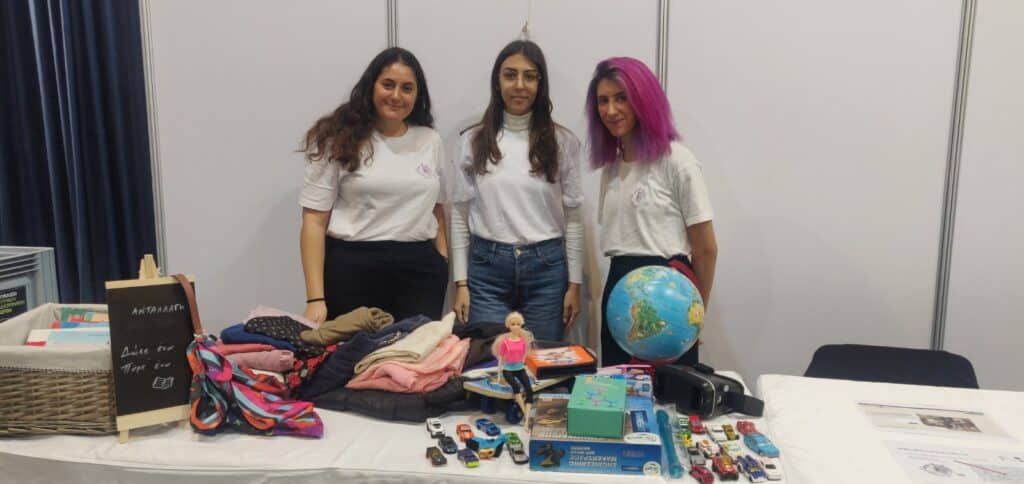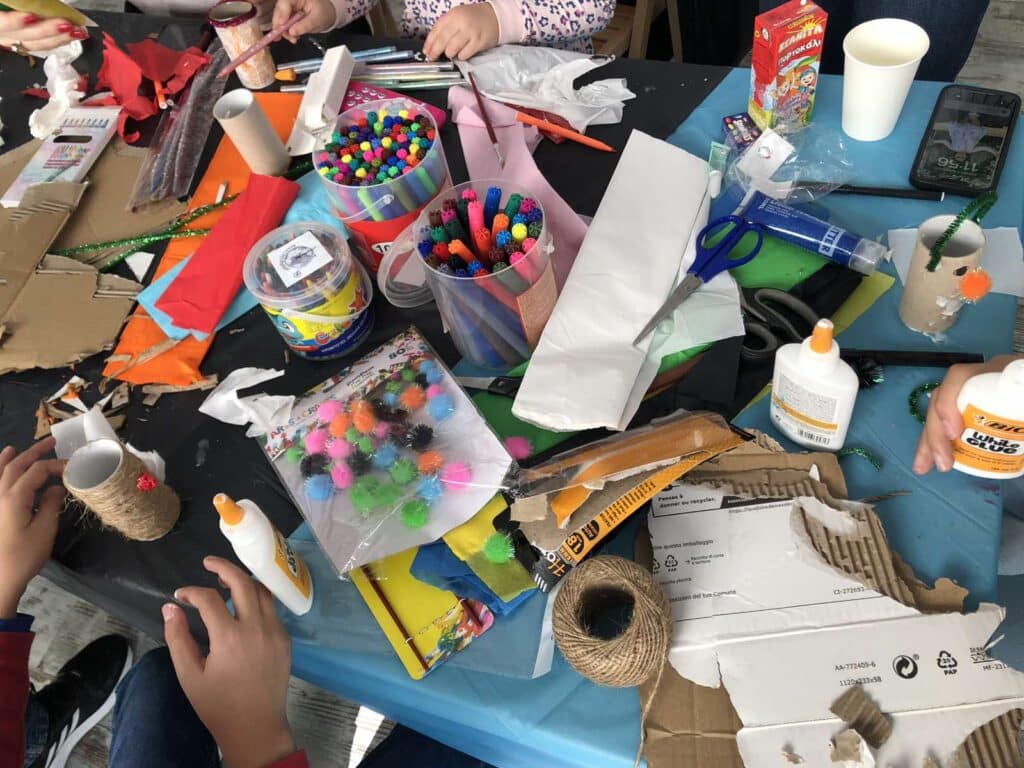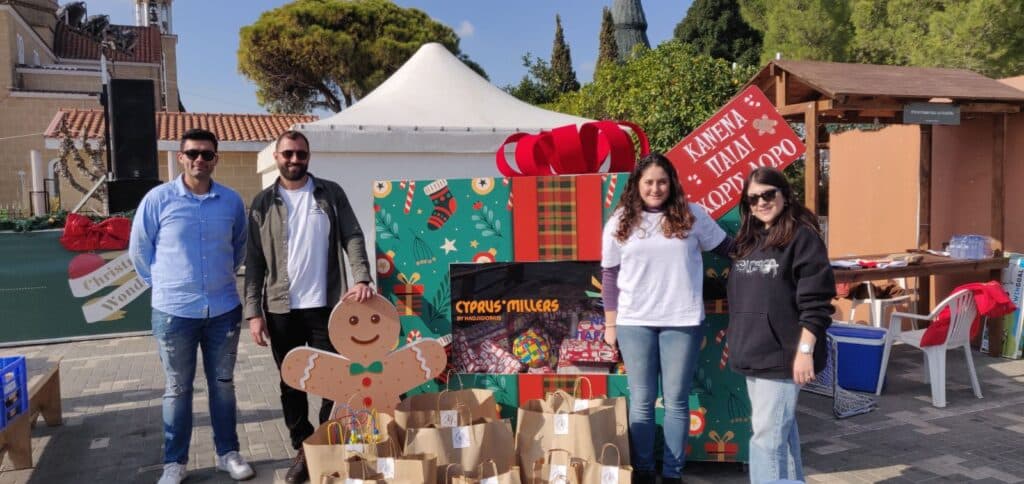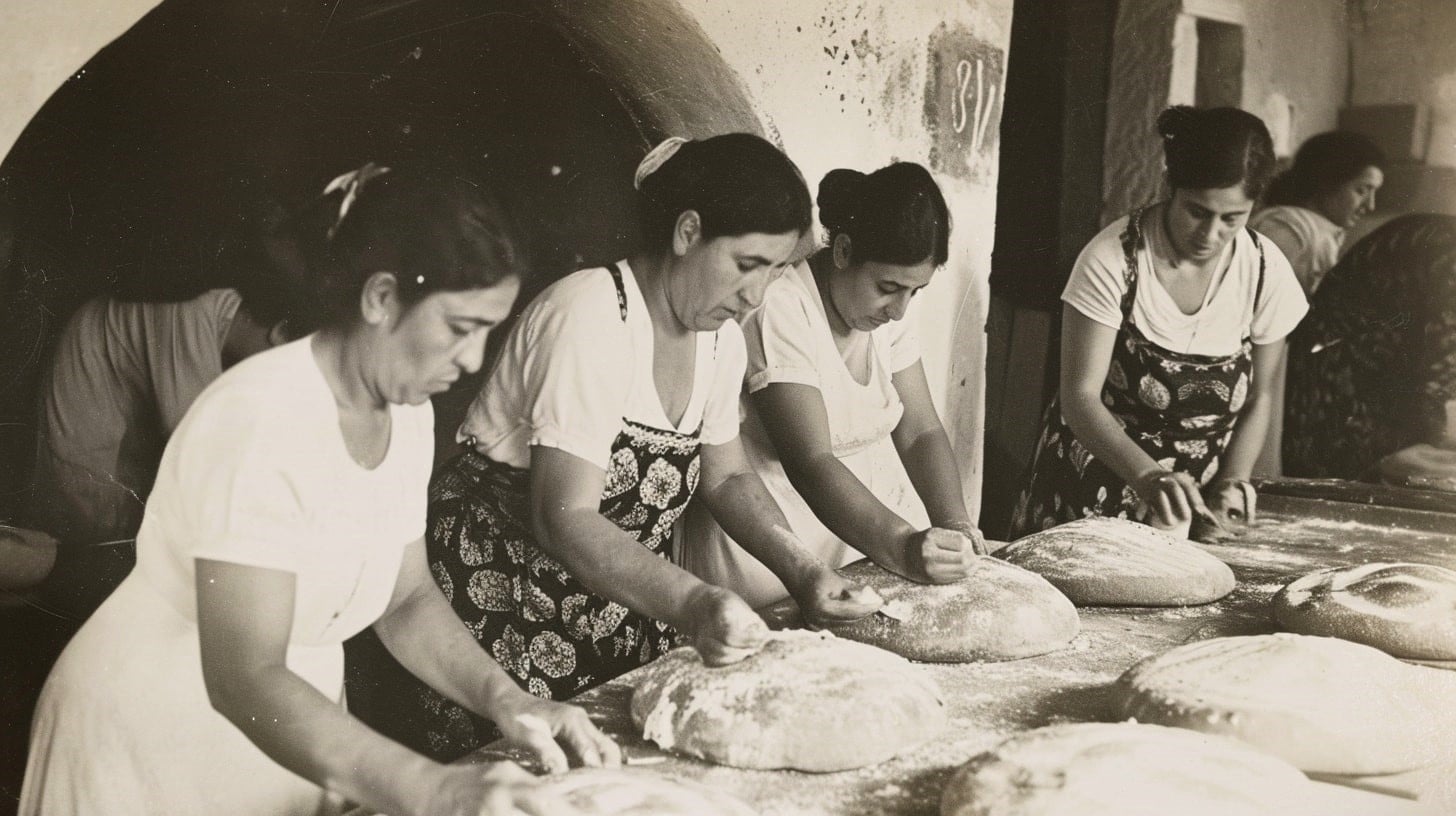‘For years, Cyprus has been bogged down by consumerism; buying into the idea that newer is better.’ ALIX NORMAN uncovers an initiative our ancestors would have understood
Once upon a time, Cyprus cared, shared and repaired.
One sewing machine, plough, or communal oven served the village; each item a boon for all rather than a symbol of individual wealth or status.
This ethos of resourcefulness and community is a stark contrast to our current throwaway culture. In an age and place where consumerism reigns supreme, and an escalating waste crisis threatens to bury us all under mountains of rubbish, surely there’s merit in our ancestral way of life?
Nowadays, we’re all well aware that our rubbish (be it a toaster, blender, or simply the leftovers) doesn’t magically vanish into thin air. But did you know that, other than a little recycled material, Cyprus doesn’t export its waste? So everything you bin is still out there, rotting away into the earth of our island…
Over the years, this has drawn considerable international attention. In 2004, the EU asked Cyprus to formulate a waste management strategy; we were, they said, set to drown in our own rubbish. But 20 years on, it’s all a bit of a joke.

The team at the library of things, Athina on the far right
According to recent data, over 1,000 companies that should have registered for recycling services still haven’t. There’s still no coherent policy for re-use of furniture (which is just taken off to a dump). And Disy deputy Prodromos Alambritis has recently gone on record as saying there’s no way Cyprus can meet its household waste reduction targets in the near future; that in fact, the island buries more than 70,000 tonnes of waste each year without any real separation system.
In short, that toaster you tossed in 2010 is still out there: slowly but surely decaying into the earth of our island, in a landfill site at Pentakomo or Xyta or Kosi.
But what if there were another way? A way our ancestors would have understood, of which they would approve? After all, how many times has your yiayia berated you for tossing towels, binning an ancient blender, or failing to pass old clothes on to the cousins?
It’s this deeply ingrained ethos that’s the guiding principle behind the Library of Things. A modern interpretation of age-old Cypriot wisdom, the Library allows you to borrow rather than buy; to share rather than squander.
Here, items such as drills, tents or airbeds become communal resources, available to all. Individual ownership of infrequently used goods is reduced; we save space and money; and the burden on our landfills is reduced!
It’s not the complete solution by any means. But, as part of the wider Circular4All initiative, the Library is definitely a step in the right direction…

Crafts with recyclables
“Sustainability is our watchword,” says Lead Environmental Expert of the Library Dr Athina Georgiou Shippi. “For years, Cyprus has been bogged down by consumerism; buying into the idea that newer is better and that if it breaks, it’s done. But there’s another way of looking at things that’s kinder to our island, kinder to the place we love. And that’s sustainability.”
What Athina is highlighting is the need for a cultural shift in Cyprus. The trend of buying new items for single or infrequent use is not only unsustainable but also contributes significantly to the island’s waste problem.
According to the European Environment Agency, every time Cyprus’ GDP goes up, so does its waste. And despite the soaring cost of living, our GDP is steadily rising. Which means we’re slowly but surely being inundated by our own rubbish. Basically, the more money we make, the more stuff we buy, and the more we throw away.
“Cyprus seems to be very caught up in a consumer culture,” Athina suggests. “We buy, we use briefly, and then we discard. But every item thrown away takes a piece of our island with it. It’s time to rethink our habits. And the Library of Things offers a practical alternative.”
At the Library, items we seldom use (such as airbeds, drills, amplifiers, sewing machines, or leaf blowers) can be borrowed instead of purchased. The rental price is nominal, and you can choose from loads of items – all in perfect working order.
“Most of our items are donated, some have been bought with grant money from U-Solve, a European Agency that helps entrepreneurs address sustainability issues in the region,” explains Athina. “But all work perfectly. We have maintenance experts on call – as well as a list of repair shops on our website, just in case you need them for your own items.

Donating toys
“So every item you borrow,” she continues, “is one thing less in our landfills. It’s a small action, but when multiplied, the impact is enormous. And the initiative is not just about borrowing items; it’s about building a community that values sustainability and understands the importance of reducing waste.”
Since the Library launched in December 2023, people have already borrowed everything from chairs to steamers, humidifiers to kettles.
“We’ve only just begun, but we’re thrilled that people are so interested,” says Athina. “We’ve had nearly 1,000 visits, which is amazing.”
Currently, the Library exists in Nicosia alone. But in time, Kykloikodromio (the non-profit parent organisation) hopes to expand the concept island-wide. Already, they’ve initiated several other ventures, including a ‘Donate, Exchange, Sell’ option on their website (similar to freebay, or a barter system), as well as a number of educational programmes.
“Our work extends beyond just lending items,” says Athina. “It’s about creating a more circular economy; cultivating a mindset of resourcefulness and responsibility that Cyprus seems to have lost over the years.
“Toasters, drills, and kettles may be a newer invention. But once upon a time, in our grandparents’ villages, such things might well have been part of a circular economy. A community in which we valued our items.
“It was,” she concludes, “just like our own Library of Things. And it worked. We didn’t bury ourselves in our own waste. Instead, Cyprus re-used and recycled, repaired and shared. Once upon a time, Cyprus cared.”
For more information, visit https://circularlibraryforall.org/







Click here to change your cookie preferences